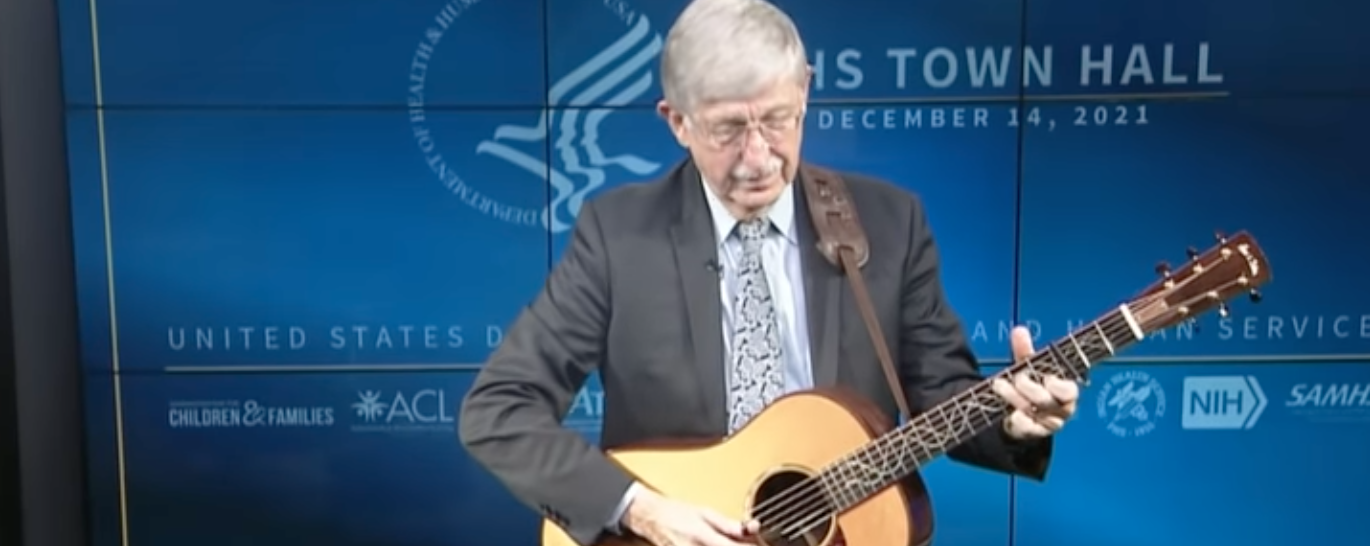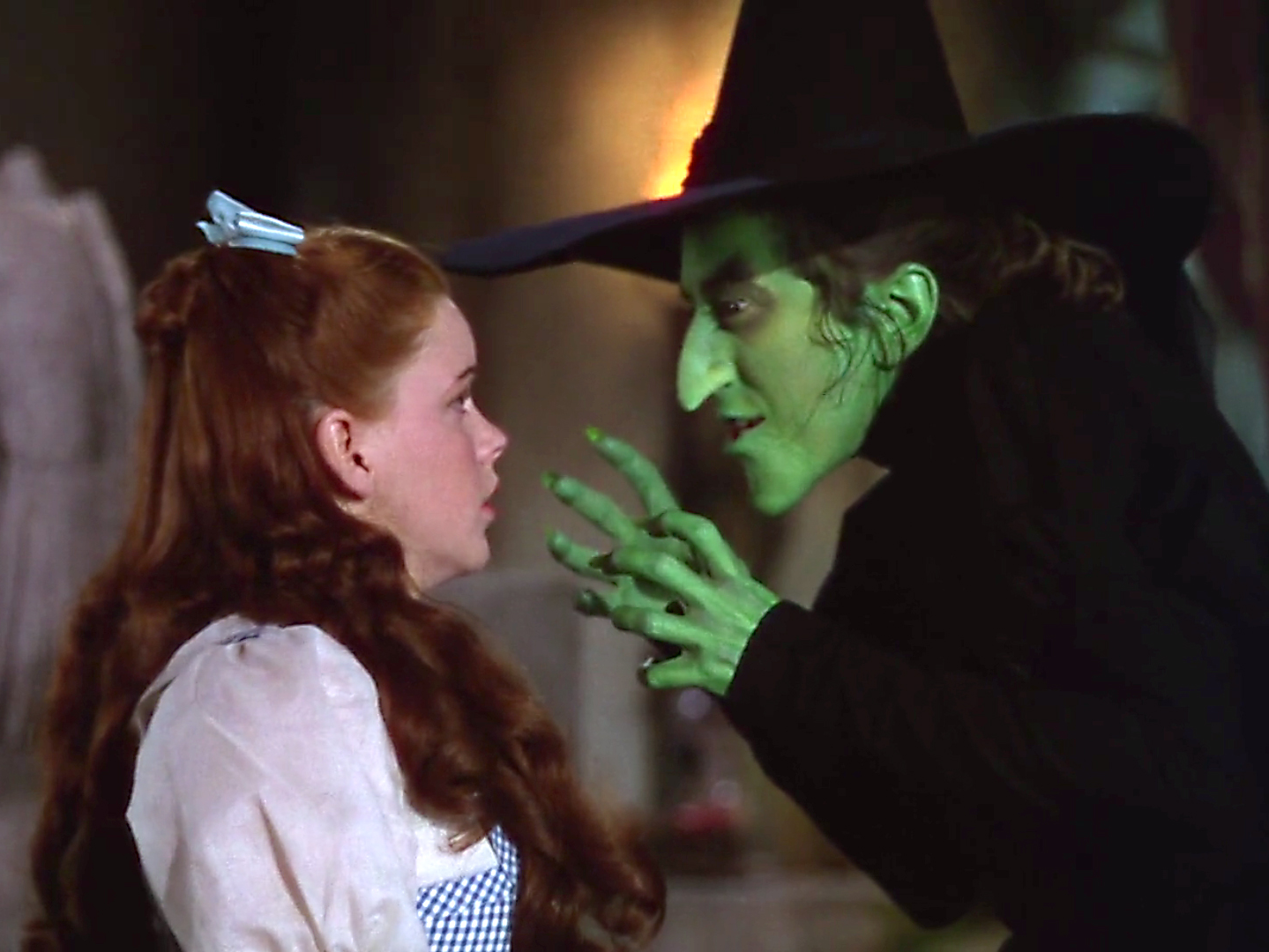https://www.youtube.com/watch?v=Ta_i4NJQX3s
This is some weird shit.
I really feel like someone has been dosing my kefir with powerful LSD.
Dr. Francis Collins, the director of the NIH, retired this week, and the Department of Health and Human Services did a tribute to him, inviting him on for a sendoff.
He spoke some words about the honor of service and so on – then he whipped out a guitar and sang a song – “Somewhere Past the Pandemic” to the tune of “Somewhere Over the Rainbow,” famously sung by Judy Garland in The Wizard of Oz.
NIH Director Dr. Francis Collins.
How is this real?https://t.co/GP4y3oHN8T
— Benny Johnson (@bennyjohnson) December 15, 2021
Really any government official pulling out a guitar and singing a parody song at his retirement sendoff event is kind of weird, I think. But you know – boomers. This sort of thing happens at corporate offices during sendoffs for retiring executives.
But it is particularly interesting that he chose this song to parody. Firstly, the original is meant to be about a young girl’s vision of an impossibly idealistic future.
It’s a commentary on the mind of an innocent girl, along the lines of “when I grow up I’m going to marry a prince and live in a castle.”
The lyrics were written by the Jew Yip Harburg, whose other notable achievement was writing the lyrics for Ella Fitzgerald’s “It’s Only a Paper Moon.”
I’m not against either of these songs, but they do represent an early Jewing of Western culture with sentimental romantic fantasy (yes, the aggressive promotion of saccharine romantic fantasy is a Jewish conspiracy – this is real life, nigga, get your shit straight).
But for those who haven’t watched The Wizard of Oz, let me give a bit more context: Garland, who played Dorothy in the film, sang the song early in the film before being transported to a magical fantasy world by a tornado, where she frolicked with magical creatures and eventually found that the ruler of the magical kingdom – the titular Wizard of Oz – was in fact a fraud, who was using illusion to control the population of the fantasy kingdom.
So, kind of interesting. Actually.
Also interesting: this guy has posted this stuff on the internet before.
https://twitter.com/Kukicat7/status/1468132221659881477?ref_src=twsrc%5Etfw%7Ctwcamp%5Etweetembed%7Ctwterm%5E1468132221659881477%7Ctwgr%5E%7Ctwcon%5Es1_&ref_url=https%3A%2F%2Fgameruprising.to%2Findex.php%3Fthreads%2Fgay-acid-trip-universe-departing-nih-director-sings-parody-song-about-coronavirus-on-retirement-livestream.32188%2F
We have to have younger people running the government.
It would have been more appropriate probably for Collins to sing the Munchkin theme and explain that he represents the Lollipop Guild.
https://www.youtube.com/watch?v=6KSiyaqnZYs
Most appropriate would have been if he’d sang Drowning Pool’s “Bodies” and dedicated it to Pfizer.
I also would have respected a rendition of Disturbed’s “Down with the Sickness.”
Or Slipknot’s “Wait and Bleed.”
https://www.youtube.com/watch?v=Z5ou8N3U8yg
Now that I think of it, System of a Down’s “Needles” might have worked best.
Here are the lyrics to that song. He could have opened with “Ivermectin is deadly, trust Pfizer.”
Update:
A reader added some interesting observations:
Also the main antagonist was not the Wizard of Oz, despite his manipulation of the natives, but the hooked nosed wicked witch of the west who had an army of flying monkeys at her beck and call who did most of the antagonizing, until she finally got accidentally killed by a bucket of water at the end of the film.
I’m not suggesting that was in any way an allegory for anything else, though probably it makes certain demographics uncomfortable in the same way the angry birds film with the green, bearded pigs, which coincided with the rapefugee crisis, made a lot of people uncomfortable. Although it is probable that the witch’s hooked nose was based on similar depictions of witches in Medieval children’s fables, and there may have definitely been some very unwoke symbolism going on there.
But I think Wizard of Oz was, in its totality, a cautionary tale. Yes, it started off with that song, and about Dorothy LARPing about how she wanted to leave her family and their farm behind, only for her wildest fantasies to that effect being realized by the tornado. But as the film progressed, she was left feeling quite homesick and missing her family, so much so that what she wished for more than anything was simply to return to her home and family, as meagre, drab and demanding as their simple depression era farm life was. Kind of a “careful what you wish for” narrative, but it wasn’t nearly as played out back then.

